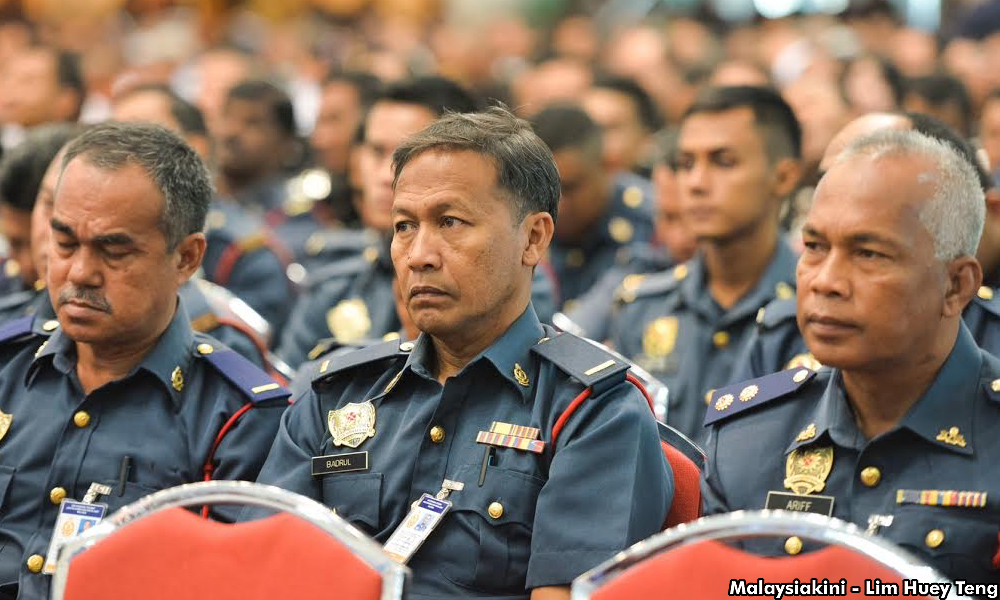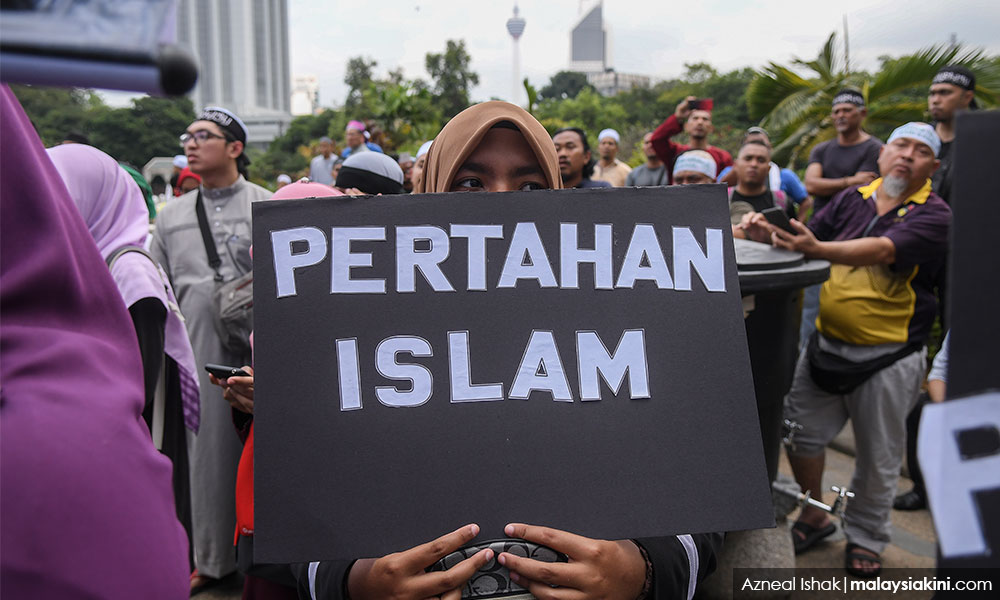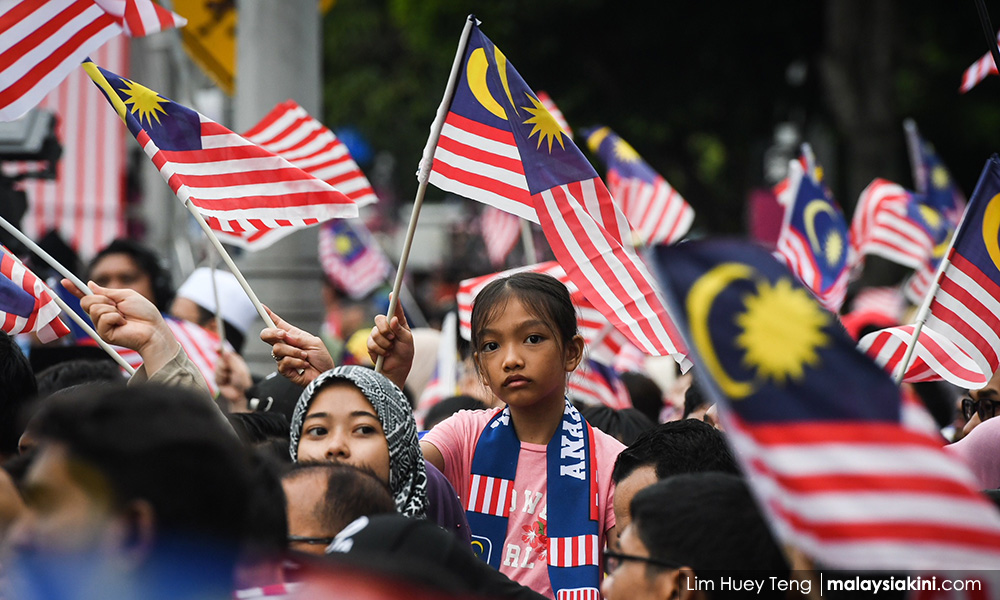COMMENT | Article 8(1) of our Federal Constitution states that all Malaysians are equal under the law and enjoy the equal protection of the law. And the rest of the article prohibits discrimination.
Article 153 provides some protection for Malays – after 1963, it was extended to the natives of Sabah and Sarawak – but is limited to quotas and a few other things. Non-Malays would have no problem with Article 153 of the Federal Constitution.
Article 160 defines ‘Malay’ for the purposes of Article 153 as those who were citizens of Malaya at the time of independence and their descendants.
The constitution is the supreme law of the country. And as the prime minister says repeatedly, "We are a nation that adheres to the rule of law."
The New Economic Policy
For years following the riots of 1969, the government has pursued an aggressive social engineering programme to bring the Malays to the perceived level of the more successful non-Malays. That programme was the New Economic Policy.
The NEP in its formulation could not be faulted. In its implementation. However, it was in many respects discriminatory. The result was the exclusion of non-Malays or non-bumiputera from many government programmes and institutions.
The argument was developed over the years that the Malays could only be secured by their dominance in politics, in the civil service and the armed forces. Hence, the concept of ketuanan Melayu.
Later, some like PAS introduced the concept of ketuanan Islam to provide a religious justification for treating non-Muslims unequally.

The NEP has brought about a transformation of the Malay community. It has created a large Malay middle class. The Malay presence in the civil service, the police, the armed forces and the government-linked companies is substantial.
It is almost 50 years since the NEP was implemented. The circumstances that prevailed in 1971 do not exist anymore.
Then there was only one university. Today, there are 21 public universities and many more private universities. There are also many colleges, polytechnics and institutions that award degrees or diplomas.
There is a significant Malay presence in most urban areas and among them are many professionals and corporate players. In other words, the Malay community has made substantial progress in achieving the aims of the NEP.
Needs- as opposed to race-based
Low income and high cost of living are the big issues faced by B40 families. There are many poor Malaysian households.
In fact, despite the NEP, there are more poor Malay households than non-Malay households. The evidence would also suggest that government policies have not reached the poor of all races, including the Malays.
Clearly, the race-based approach to poverty eradication is not working well. Unfortunately, the idea that race-based policies are still needed for the Malays is deeply embedded in our politics and in the minds of Malay leaders.

Race-based parties and race-based politics have resulted in polarisation in our society and in suspicion, distrust, fear and hostility between races. To add to the problem, religious extremists have jumped into the fray by pushing for an Islamic state.
Why not a more inclusive system?
A simple question needs to be asked and answered. After 50 years of the NEP, why is there a need for its continuance?
Why can’t it be replaced with needs-based programmes which target the poor of all races for special assistance? Why is there a necessity to have institutions and programmes that are exclusive to the Malays?
Today, the government is dominated by Malays. Malays have no reason to fear being neglected or left behind. That can never happen again. The situation which prevailed in 1959 was not the fault of anyone.
The system which we inherited from the British was a laissez-faire system. Insufficient thought was given to the need for more aggressive social engineering. That was more than rectified by the NEP.
The circumstances prevailing today are different from what they were in 1971.
A vision for the future
A fresh approach is required. The country is irreversibly multiracial, multicultural and multireligious. The proportion of Chinese and Indians in the country has dropped from 36 percent and 12 percent in 1957 to 26 percent and seven percent today. Those numbers will continue to drop.
The poor of all races should be helped. And the talents of all races should be harnessed to move the nation forward for the benefit of all its citizens. Chinese business enterprise is good for the nation.

Race-based politics and policies have resulted in a negative perception of our racial diversity. That must change. Our diversity is a strength. Our diversity produces a dynamic that brings out the best in our people. We learn from each other.
All races have contributed to the development of the country. Isolating ourselves, whether within our country or from other countries, will only weaken us. In the words of the Malay proverb, we will be ‘seperti katak di bawah tempurung’ (like the frog under a coconut shell).
God endowed us all with intelligence. He did not make one race superior to the other. During the age of conquest and colonialism, there were those who wanted us to believe in their innate superiority so that they could exploit us.
We are free and independent now. We should not allow our fears and insecurity to limit us. We should establish the infrastructure we need to bring out the potential of all our people.
Hence, the importance of radical education reform. Access to education should reach the poorest in our society. Assistance to the poor should be adequate to lift them from their poverty.
Education should be rigorous in giving to our young the knowledge and skills they will need for employment and for life.

Our young should interact freely with each other and let cultural osmosis occur so that the best in our cultures is transmitted to each other. Respect for differences will be there, especially religious differences. Let the innocence, idealism and energy of youth be the springboard for change.
Invest in our teachers. Encourage the best of our people to become teachers. Pay them well. Reward them when they achieve the targets set for them. Discourage those who have no passion for teaching. Recruit them from all races.
Malays need not fear equality. Given Malay dominance in our politics, no change will occur in government policies and actions without Malay concurrence and support. Equal treatment of all will move the nation forward and bring benefit to all.
DAVID DASS is a lawyer and Malaysiakini subscriber/commenter.
The views expressed here are those of the author/contributor and do not necessarily represent the views of Malaysiakini.

